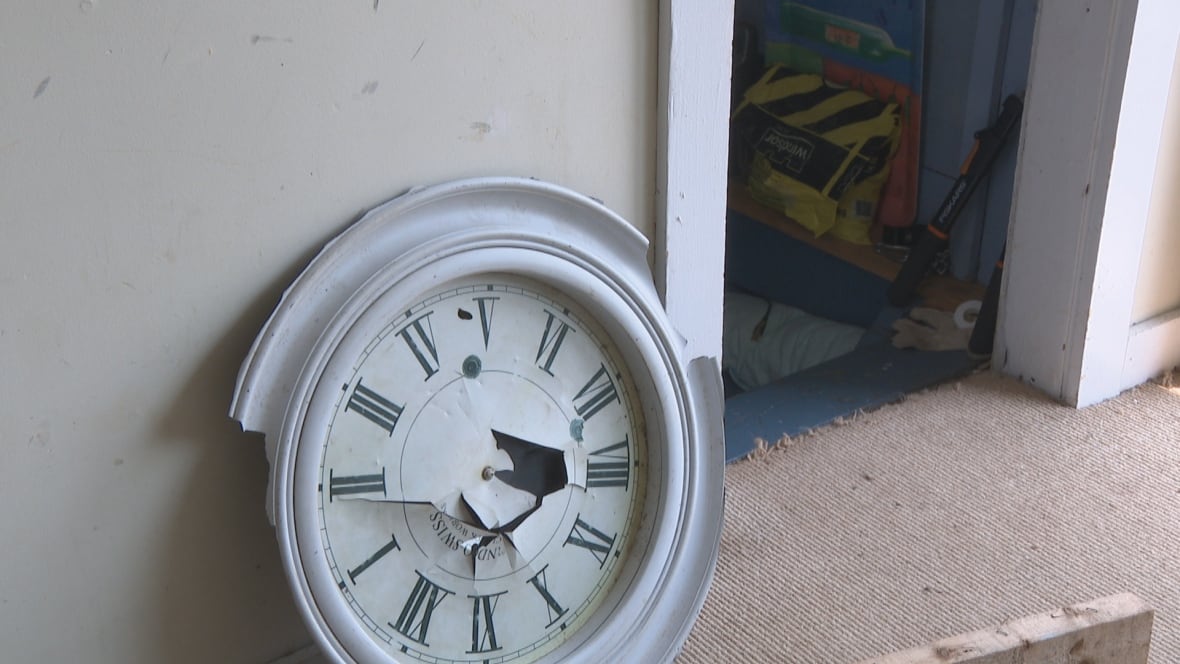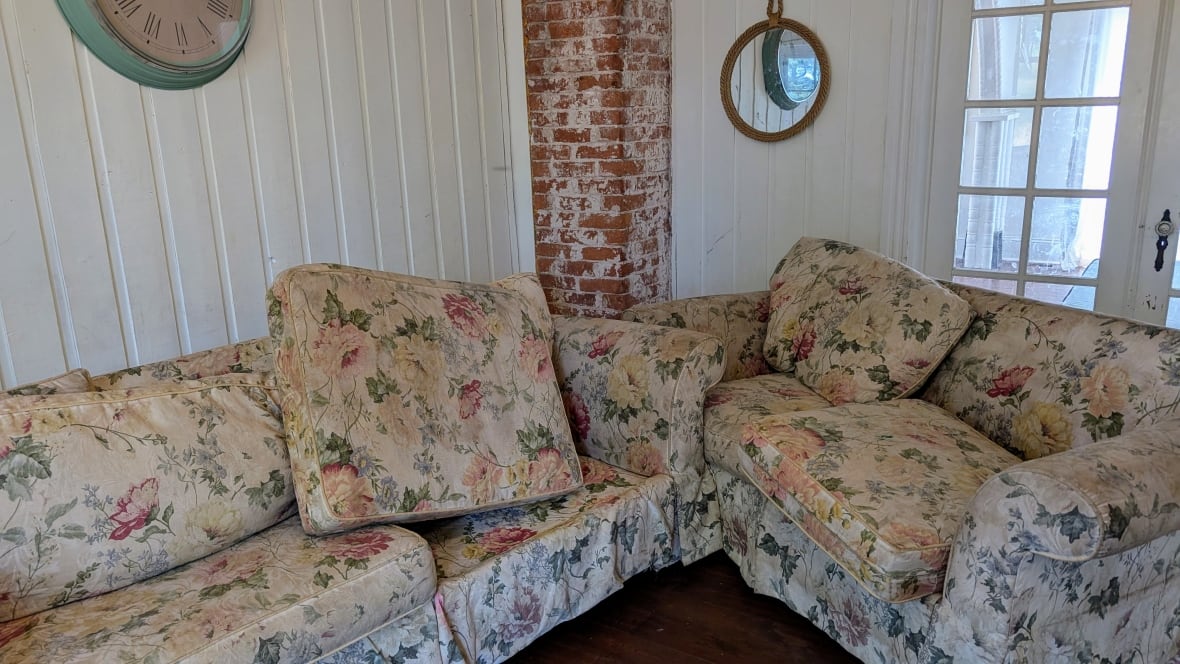Problem tenants finally leave P.E.I. rental property, but landlord's issues continue
IRAC denies tenants' request to delay eviction, orders them to hand over unpaid rent

Thamara DeVries is finally beginning the process of reclaiming her dream home, after months of watching the property turn into a nightmare.
The landlord rented out the fully furnished house in Wheatley River, P.E.I., back in February to tenants she initially believed to be a mother with three daughters.
But shortly after they moved in, DeVries discovered it was actually two adults and 10 children, along with multiple animals — and said they were destroying her home.
Her battle to evict the problem tenants stretched up until this week, when the family obeyed a July 11 order to vacate from the Island Regulatory and Appeals Commission, packed their belongings into a moving truck, and left.
"I don't ever wish this on anyone. I don't understand why everything takes so long," DeVries told CBC News on Wednesday.
"There's appeal after appeal after appeal, which is extending the time, which is extending the damages to the property."

After discovering how many people were living in the residence, DeVries immediately contacted the Island Regulatory and Appeals Commission (IRAC), which handles disputes between landlords and tenants on P.E.I. She argued that the tenants had given false information, that the home had an unreasonable number of occupants, and that unreasonable damage was being done.
The commission initially found that there were no valid grounds for eviction. The monthly rent of $2,900 was being paid, at that point.
As a series of accusations and counter-accusations from both parties dragged on, DeVries watched the condition of the home deteriorate.
'It seems like a horror movie'
Eventually the tenants allowed her to walk through the property, where she discovered knives jammed into door frames to keep people from entering, along with a foul odour throughout the house.
She said the downstairs of the property had been turned into a greenhouse for growing plants and all the furniture had been tossed outside, exposed to winter conditions. She also found kittens in the bathtub, and alleged the family was breeding cats in her home.

Outside, she said the tenants had turned the yard into farmland and dumped several truckloads of manure on top of where her well sits. Despite repeated requests to have it moved, she said the pile remains there.
During a hearing at the end of May, DeVries presented documents showing no rent had been paid since April and photos of the damages.
Ruling on the non-payment issue, IRAC eventually said the tenants had seven days to vacate, although a document viewed by CBC News noted: "We make no finding with respect to the merits of the landlords' claims respecting eviction on the basis of damage to property, for example."
But the tenants appealed that eviction notice, arguing they couldn't find housing within a week and alleging there was discrimination in the P.E.I. rental market against large families.
The tenants also applied for a return of rent totalling $14,500, along with "compensation for emotional distress" in the amount of $12 million, according to IRAC documents.
"The tenants say that they withheld rent because of the landlord's behaviour, [which] they characterize as harassment which breached their quiet enjoyment of the rental unit," one document says.

On July 11, IRAC denied the tenants' appeal for more time and terminated the rental agreement, effective Tuesday, July 15. The commission also ordered the tenants to pay DeVries outstanding rent in the amount of $7,203.23, minus the $2,000 damage deposit that will stay with the landlord.
The tenants left Tuesday evening, DeVries said, with the RCMP present to make sure the move went without incident.
She's since been through the house again, and was "beyond devastated" by its state.

When a CBC News team visited on Wednesday, there was a pervasive smell of cat urine. The back door had been taken completely off of its frame and left outside, most of the furniture and decor items were either gone or badly damaged, and the driveway was covered in manure.
A formerly white couch with a floral pattern was a dingy brown, and there were a few cats still living under the floor.
"It just seems like a nightmare. It seems like a horror movie," DeVries said. "It looks like somebody was in here purposely damaging the property. It doesn't feel like it was… a wear-and-tear type of situation."

She isn't sure how much it will cost to fix up the home, but expects the pricetag to be in the thousands of dollars.
On the brighter side, DeVries said she is touched by Islanders offering their support to help her paint and clean up the property.
She plans to move back into the home once it's ready — and said she'll never rent it out to anyone again.
She hopes her situation results in landlords having more rights in the future, and urged IRAC to speed up the eviction process in extreme cases like hers.
"I understand that there are bad landlords, and I understand there are bad tenants, but what I find is that tenants do get away with a lot of damage," she said. "The process is so long that, unfortunately, it's inflicting extra damages that should be avoidable."



